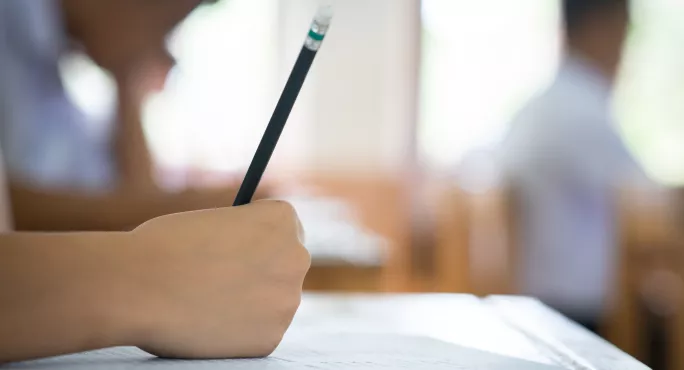Exams regulator Ofqual today revealed its quality-assurance requirements for GCSE and A-level grading this year.
In a blog, Cath Jadhav, Ofqual’s director of standards and comparability, said that exam boards would request samples of work from every school. Here is what we learned:
More on GCSEs and A levels 2021:
1. Every school will need to provide samples of GCSE and A-level work
Once schools submit their grades on 18 June, exam boards will request “at least” evidence from one A-level subject for at least five students, as well as evidence from two GCSE subjects, “one of which is likely to be either English language or maths”, looking at the work of at least five students each.
Schools that offer only A levels or GCSEs will be asked to submit work only for those qualifications.
2. Schools will have 48 hours to submit evidence for sampled work
Exam boards will decide on both the subject and students needed for the sample. Students will be selected across the grade range and could include private candidates where schools have accepted them.
Boards will tell schools which sampled work is needed by 21 June, and schools must then submit all evidence for the grades for these students within 48 hours.
3. Comparisons with previous years will be made across the qualification, not by individual subject
Exam boards will compare a school’s results and select schools “where the proportion of grades in 2021 appears significantly higher or lower than results in previous years when exams took place - 2017, 2018 and 2019”.
“Results for individual subjects, especially those with small cohorts, can vary more from one year to the next. So the comparison for a [school] will be made at qualification level - for all GCSE subjects combined and all A-level subjects combined.”
4. Exam boards will prioritise sampling schools where results are ‘out of line’ with historical performance
“Exam boards will prioritise for quality-assurance checks those [schools] where results are more out of line with their historical results than other [schools], including where grades are lower,” the blog says.
But it adds that this does not mean schools should award grades that closely match those in previous years. It says “there can be good reasons for results to vary from one year to the next, and [schools] should record the reasons for any substantial variances, in line with the [school’s] policy”.
5. Boards could ask for more work evidence if they have ‘serious concerns’
If, having reviewed the work, exam boards have questions about a school’s grading decisions, the exam board will contact the school.
“Where exam boards have serious concerns about a centre, it could ask for more work to be provided,” the blog says.
“And in some cases, if the evidence does not support the grades submitted, [schools] will be asked to reconsider their grades. Exam boards may want to discuss the [school’s] grading decisions. Where the exam board disagrees with the [school’s] grade, it can withhold results.”





